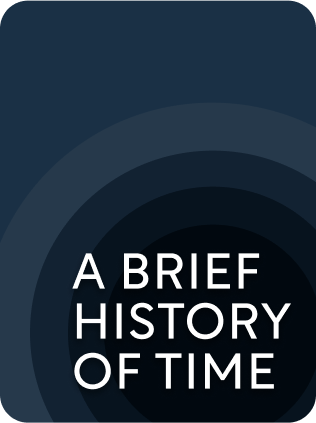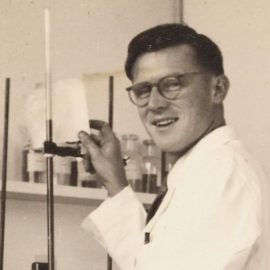

This article is an excerpt from the Shortform book guide to "A Brief History of Time" by Stephen Hawking. Shortform has the world's best summaries and analyses of books you should be reading.
Like this article? Sign up for a free trial here .
What are some of the best quotes from A Brief History of Time? What’s the context behind them?
Science has profound implications for philosophy and everyday life because science describes and predicts how the universe works. To make the discoveries and implications of modern science more accessible to everyone, renowned physicist Stephen Hawking described the principles of modern physics for a general audience in his book titled A Brief History of Time.
Keep reading for Stephen Hawking’s quotes from A Brief History of Time: From the Big Bang to Black Holes.
5 Top Hawking Quotes From His Book
Here’s a selection of Stephen Hawking’s quotes from his book A Brief History of Time:
Quote #1: If time travel is possible, where are the tourists from the future?
Can you build a time machine? Not easily. If you could go faster than light, time would run backwards for you, relative to other observers. But according to general relativity, it’s impossible for you to go faster than light.
According to quantum mechanics, subatomic particles can travel backwards in time, but Hawking doesn’t suggest any way you could use this principle to make macroscopic objects travel back in time.
Theoretically, it’s possible to have a “wormhole” that connects two different regions of spacetime. Thus, Hawking views wormholes as the best possibility for time travel. However, he also points out that wormholes require a type of space-time curvature that scientists have never seen happen in the real world. He also conjectures that, if you could create a wormhole, it would probably collapse as soon as you tried to go through it.
Quote #2: The increase of disorder or entropy is what distinguishes the past from the future, giving a direction to time.
The thermodynamic arrow of time is based on the second law of thermodynamics, which states that the total entropy of the universe (or any closed system) cannot decrease. Entropy is a measure of disorder. Thus, time moves forward in the direction that the entropy of the universe increases.
Quote #3: You cannot predict the future.
Quantum mechanics limits your ability to predict the future because it’s probabilistic instead of deterministic, but quantum mechanics also limits your ability to measure the present state of the universe because of the uncertainty principle.
As Hawking explains, the uncertainty principle states there is always at least a certain amount of uncertainty in your measurement of the position and velocity of a particle. And uncertainty about the present creates greater uncertainty about the future, because to predict where a particle is likely to go in the future, you need to know where it was at some point in the past or present, and how fast it was going at the time.
Quote #4: One could still imagine that God created the universe at the instant of the big bang, or even afterwards in just such a way as to make it look as though there had been a big bang, but it would be meaningless to suppose that it was created before the big bang. An expanding universe does not preclude a creator, but it does place limits on when he might have carried out his job!
Hawking recounts that, in the twentieth century, new scientific discoveries challenged the theory that the universe had always existed. Based on these discoveries, the “big bang” theory replaced the static universe model. The big bang theory posits that the universe is expanding outward from a point where it came into existence at a finite time in the past.
Quote #5: If we do discover a complete theory, it should in time be understandable in broad principle by everyone, not just a few scientists. Then we shall all, philosophers, scientists, and just ordinary people, be able to take part in the discussion of the question of why it is that we and the universe exist. If we find the answer to that, it would be the ultimate triumph of human reason—for then we would know the mind of God.
Hawking asserts that the ultimate goal of science is to develop a “unifying theory” that can be applied in any context. He points out that, if you could formulate a unified theory of physics and if you knew the exact state of the entire universe at any point in time, you could use that theory to predict the state of the universe at any other time. Scientists have made progress towards this goal but have not yet achieved it.

———End of Preview———
Like what you just read? Read the rest of the world's best book summary and analysis of Stephen Hawking's "A Brief History of Time" at Shortform .
Here's what you'll find in our full A Brief History of Time summary :
- The search for a theory that explains the history and evolution of our universe
- Stephen Hawking's discussions about time, space, dimensions, and quantum theory
- How time travel would theoretically work






